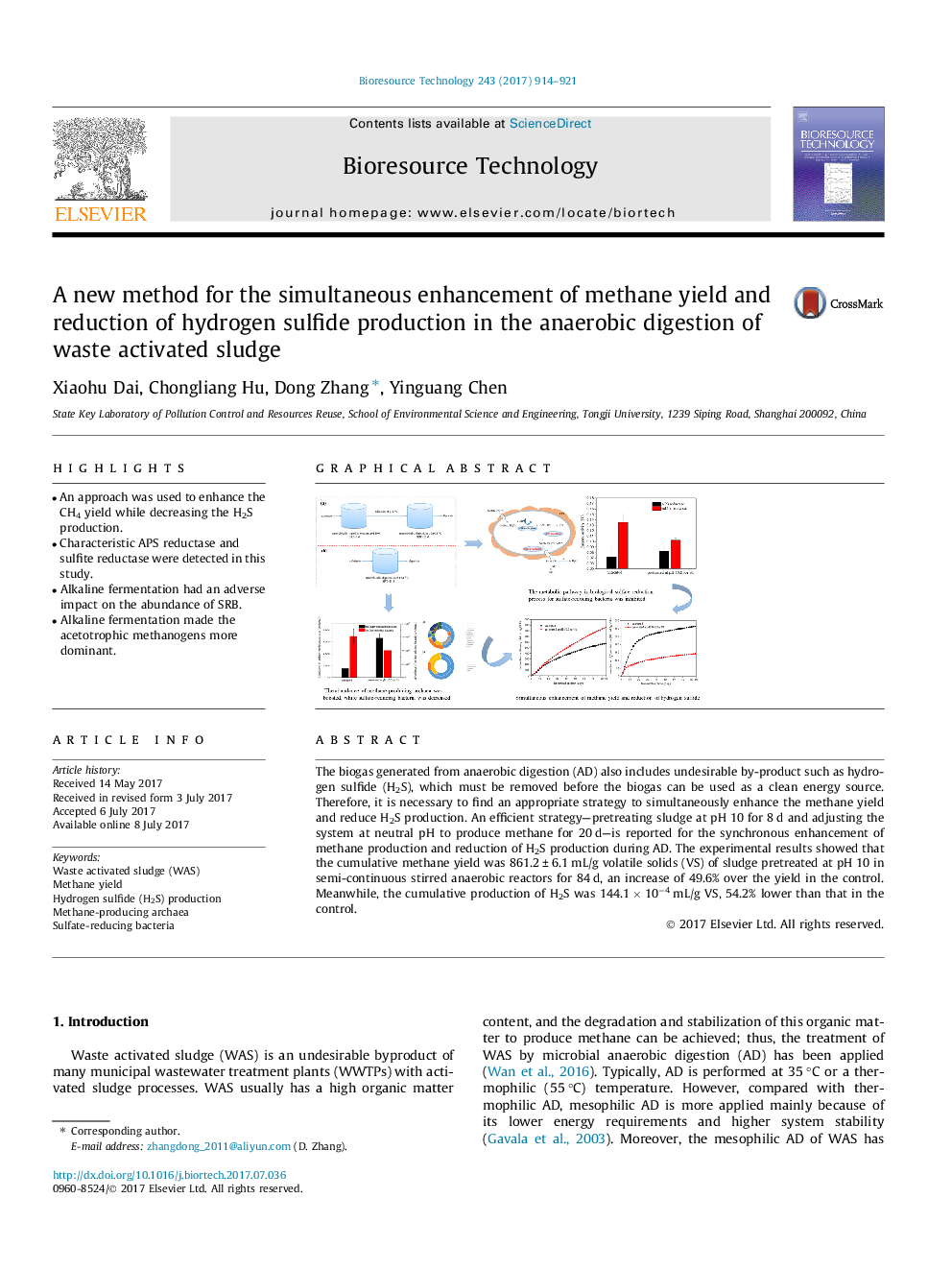| Article ID | Journal | Published Year | Pages | File Type |
|---|---|---|---|---|
| 4996890 | Bioresource Technology | 2017 | 8 Pages |
â¢An approach was used to enhance the CH4 yield while decreasing the H2S production.â¢Characteristic APS reductase and sulfite reductase were detected in this study.â¢Alkaline fermentation had an adverse impact on the abundance of SRB.â¢Alkaline fermentation made the acetotrophic methanogens more dominant.
The biogas generated from anaerobic digestion (AD) also includes undesirable by-product such as hydrogen sulfide (H2S), which must be removed before the biogas can be used as a clean energy source. Therefore, it is necessary to find an appropriate strategy to simultaneously enhance the methane yield and reduce H2S production. An efficient strategy-pretreating sludge at pH 10 for 8 d and adjusting the system at neutral pH to produce methane for 20 d-is reported for the synchronous enhancement of methane production and reduction of H2S production during AD. The experimental results showed that the cumulative methane yield was 861.2 ± 6.1 mL/g volatile solids (VS) of sludge pretreated at pH 10 in semi-continuous stirred anaerobic reactors for 84 d, an increase of 49.6% over the yield in the control. Meanwhile, the cumulative production of H2S was 144.1 Ã 10â4 mL/g VS, 54.2% lower than that in the control.
Graphical abstractDownload high-res image (188KB)Download full-size image
